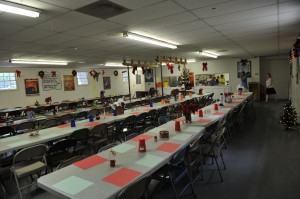Matt Chandler discusses the Gospel Project
Children’s Retreat Information
Our theme for this year is “being a superhero” and I am very excited about this very special event in the lives of our children. This event is designed for 1st-5th graders, but preschoolers are welcome to bring their parents with them. Our desire is that would due a “family event.” This would be a great way to focus our children’s spiritual lives this new school year on what God would desire for us to do for Him.
$50 per child, $40 per parent, $100 family maximum.
Click here to sign up!
Restored Relationship at Camp Rock

Camp Rock is a camp specifically designed to serve children who are in the foster care system or are “at risk.” The Valdosta Baptist Association sponsors this event, and Redland Baptist Church specifically organizes the camp. This year there were over a hundred children who enjoyed a five day, four night camp complete with three meals, housing, and a great staff of counselors.
The highlight of the week is Christmas at Camp Rock where the entire dinning hall is decorated for Christmas Thursday after lunch so that when the kids enter for dinner they are completely surprised by Christmas decorations, lights, singing of carols, gifts, a hug from the entire staff, and a huge Christmas dinner. There were many open mouths and smiles as the children entered the dining hall.
My family had the privilege of serving as support staff for the entire week. We emptied trash, cooked, took pictures, videos, helped wherever we could, and the Amazing Bozini even made a guest appearance. My children were in with other kids who floated through the programming and even slept in the cabins at night
_____________________________
Words Hurt.
On one of the days as the kids were floating from station to station, I was returning something to the adults cabin and came across Caleb’s (my son’s) camp counselor (who also happened to be named Caleb). The counselor told me of how Caleb and another boy had just had a “disagreement” and that the other boy named Brandon wanted to go home, as a result of their argument. Caleb (the counselor) was at a loss of what to do and basically handed it over to me, and he and the group went on their way from kickball to their next station. So there I was with Brandon who was crying uncontrollably and Caleb who seemed to be nonchalant about the whole event.
I asked Caleb what had happened and he began to tell me a story of how he and Brandon had been discussing Pokemon characters and which one of them were more powerful than another. Caleb said one character was more powerful because of one thing, and Brandon had countered with some other reasons why another character was more powerful. The disagreement continued to escalate and become heated until Brandon said, “well at least I don’t have to wear idiot glasses.” And after some discussion with Brandon I further discovered that Caleb had fired back with, “well at least I have a thumb!” Brandon’s comment did hurt Caleb’s feelings, but Caleb’s words cut deep.
You see Brandon was born without a thumb. Every day of Brandon’s life (as he explains it) he is made fun of for not having a thumb. His school life is miserable because there are bullies there that ridicule him about the deformity. Caleb’s words had hit him deep and in a way that he never could have predicted. Brandon came to “Bible Camp” hoping to have one week of his life where no one would make fun of him because of his thumb.
One minute Brandon was firing back, and the next he was an emotional crying lump on the floor. Caleb had won the verbal scrimmage, but the cost of the victory was very high. I made the boys apologize to each other and go on to their next station (this worked for my boys when they argue, why not try it here?). Caleb didn’t mean it, and Brandon would have nothing to do with it.
I took Brandon to crafts (their next station) and got him started in the craft project where he eventually calmed down. I then proceeded and take Caleb outside to “explain” how powerful his words had been over Brandon. I leaned in pretty hard, and was very descriptive of how this boy’s life was affected by people’s words and how his life was different because of his deformity. I described how this camp was designed to be a haven for these children whose lives are so full of pain and disappointment and now he had messed that up for this boy. Did I say that leaned in pretty hard?
Words are powerful.
I told him that he had to make this right and how the boy wanted to go home, leave camp, because of the pain that he felt because of Caleb’s words. Then Caleb began to cry. After a few minutes I told him to go to the bathroom, clean up his face, and at some point when he felt best (I left it up to him) he was to go and apologize to Brandon where he was to truly express how he felt sorry for his actions, and explain that to him. He wanted go right away, but I told him to wait and let Brandon cool down and talk to him later. Caleb then went back to another table and started his craft project.
_____________________________
Making It Right
I then went to a corner in the craft room to begin working on a video for a presentation on the last day. As I was editing video and pictures on my laptop, I looked up to see Caleb standing at Brandon’s seat. I could not hear what he said, but I could see on his face that he truly was sorry for what he had said. The boys hugged and I could not hold back my tears. I gave him a smile, and as they hugged he smiled back over Brandon’s shoulder. They were inseparable the rest of the week. They even set up a play date for later in the summer.

My son had fallen, and then made it right. I was so glad that I was there to guide the process, and witness my son doing the right thing. I am so glad that my son’s conscience was stricken with guilt over his behavior. As we stood outside the classroom, it felt like I was giving him a verbal spanking. It was different than lectures about how he needed to work harder in school, or not to aggravate his siblings. He needed to get to a point where he got a glimpse of how his words had hurt another person.
Our children will make mistakes and have moral failings, and I was so thankful to God that I was able to be there to steer him in the right direction. A parent’s words are powerful. If we use them for evil we can crush our children. If we use them for good, then we can steer them toward righteousness and away from destruction.
“Hear, my son, your father’s instruction,
and forsake not your mother’s teaching,
for they are a graceful garland
for your head and pendants for your neck.”
Proverbs 1:8-9
People Watching
As a young boy I have fond memories of spending many Friday nights with my grandparents. They had a tradition that stretched out over several decades of leaving their quaint farm home and driving “to town.†Their destination was the Opelika Mall near Auburn, Alabama (where I would eventually go to college, but I don’t think this family tradition impacted that decision in any way). My grandmother, who I affectionately call Mamama (yes, there is a story behind this nickname), would stroll through JC Penny, Sears, and the like until she had purchased the perfect Christmas, birthday, etc. present. This process of elimination would take several hours.
While she would shop my grandfather would sit on a bench in the middle of the mall. He would be joined there by other men (not always elderly, I am a case in point) who would carry out a manly tradition that in our background check, National Security, 9-11, restraining order, day may sound a little shocking. But these men would (and I suppose this tradition still is alive today) “people watch.â€
This involves observing people as they walk through, hang out, run errands, and shop in the mall or other public place. All kinds of people doing all kinds of things seemed to fascinate the retired gas company worker, dairy farm owner, and WWII veteran. Occasionally one of these men would lean over to the other men there, make a comment, and the whole group would laugh. These men didn’t know each other and rarely even talked to each other, other than these cryptic softly spoken comments. They did not make comments about women, but teens with multicolored spiked hair, or an untethered wild child would almost always get some kind of a reaction from my grandfather. The “weirdo†who spoke to himself, did things that everyone else does in private in public, or was “just not right in the head†typically did not get laughs but frowns and looks of concern.
As a boy observing this behavior and even sitting down and doing it myself has taught me something very important:
_______________________
People WatchingÂ
1.  Observation is an art form. You don’t stare at people. You look in their general direction as if looking at something behind them, but while they aren’t looking you take in all the details of the person. But if you look close enough for long enough the details of their lives pop out like some dialogue in a Sherlock Holmes novel. Some are better observers than others. But everyone has something to tell just in how they walk through the mall.
2. Â People watchers enjoy variety. If everyone were like them, these elderly men would have nothing to make comments about. The variety in life made their lives fun for a couple of hours on a Friday evening.
3.  Storytelling. As I watched the people I would create a story for them in my mind. If it were a dating couple (and yes you can tell the difference between dating a married couples) I could look at the girl and then the boy and be able to tell you everything about their relationship. If it were a mother and child I would imagine what kind of house they lived in, what they ate, the car they drove, even what Christmas would have been like in their home – from just a few seconds of watching them together.
_______________________
Eventually, one by one the grey hairs would come to collect their husbands and the panel of antique observers would shrink down to the last one. My grandmother would say, “Fletcher, are you ready?†and my grandfather would slowly stand and without a word walk back to the car and drive home. He would have a smile on his face as he remembered a comment made by the men, or a wildly dressed young person. In a week’s time the tradition would continue once more.
- « Previous Page
- 1
- …
- 109
- 110
- 111
- 112
- 113
- …
- 208
- Next Page »
